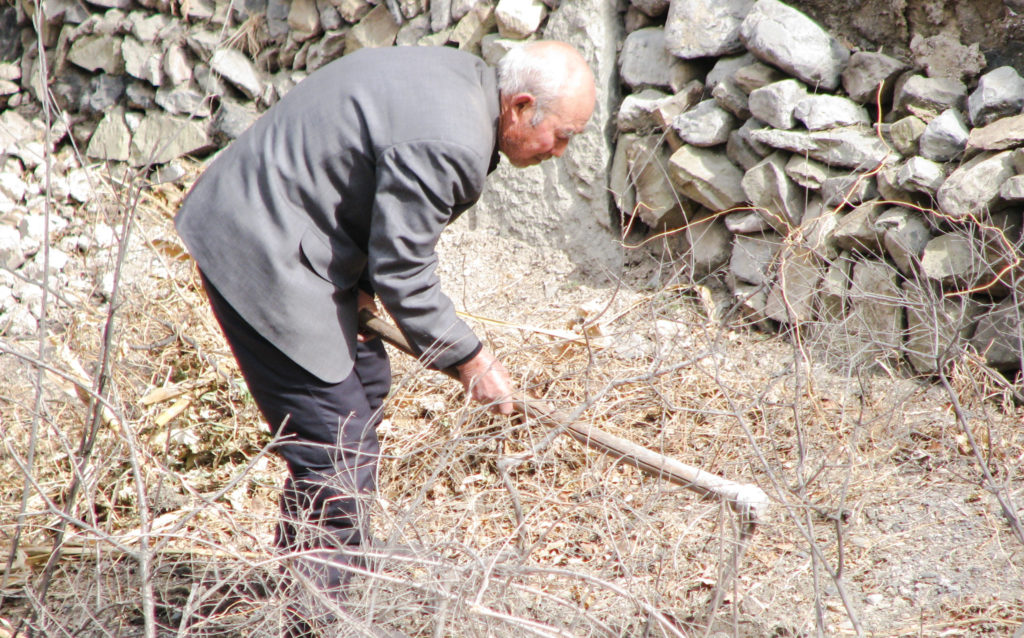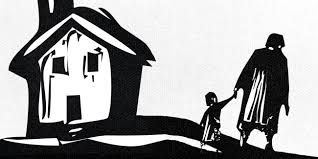MID-TERM BREAK: March 5-13
In this section, we will consider what it means to think analytically. This approach entails breaking down a topic and then reformulating it to provide a new perspective on what it is about and why it is important. I am especially interested in statements that have this form: “If I think this…., then the implication is this…..”
Our goal in reflecting on the topics below will be to consider the relationship between our conceptions of Hell and human behavior. Here is my basic proposition: the way we define the world will have direct implications for how we make choices and how we act.
Consider these issues:
-
-
- What do we mean when we speak about the “human condition”? What do we mean when we speak about “human nature”?
- Is human nature the same thing as the human condition? (Not necessarily)
- Does it matter whether there continue to be different conceptions of Hell in our society?
-
These questions also relate directly to the next theme in our course: Prescription. How is our conception of Hell related to our moral options?
17. Tuesday, March 15
Today, I want to begin our discussion about the implications of our understanding of Hell by considering a topic that has come up frequently: the human condition. What do we mean by this abstract concept?
To facilitate this discussion, I am asking you to read two of the most vivid chapters from Fyodr Dostoevsky’s extraordinary novel, The Brother’s Karamazov.
As you read the chapters, ask yourself: What is Ivan Karamazov’s “argument” about the human condition? What do you make of his recommendations about how we should lives, as he expresses them through the example of the Grand Inquisitor?
To bring Dostoevsky up to date, consider these two readings about the science of Free Will: Can we change the human condition by exercising our Free Will? Do we even have Free Will?
Paragraph Assignment: “What argument can Alyosha present to effectively rebut Ivan’s horrific depiction of human nature?”
IMAGE SIX
UTILITARIANISM: “HELL BY NUMBERS”
18. Thursday, March 17
Discussion:
Today, we will begin to discuss the moral implications of utilitarian judgments of human worth.
Peter Singer, “Taking Life: Humans” PRINT AND READ Please let me now if you have any problems with this link.
Harriet Johnson, “Unspeakable Conversations” PRINT AND READ
Chloé Cooper Jones, “Contemplating Beauty in a Disabled Body,” New York Times, March 29, 2022 PRINT AND READ
“Catholic Social Teaching and the Dignity of the Human Person” PRINT AND READ
What are the Coronavirus’s implications for our attitudes about the value of human life? Are they changing?
“Who lives and who dies?” READ
For this discussion, I recommend that you surf around for a very general understanding of the philosophical approach known as “utilitarianism.” Do not worry about identifying all the different types of utilitarianism. Our focus is on Singer’s type.
Paragraph Assignment: What does Singer mean by treating humans humanely? Is he right?
As you read Singer’s work, consider an alternative perspective on human worth that is reflected in the passage from Jacques Maritain below. Maritain was one of the greatest Catholic philosophers of the twentieth century and the intellectual father of Vatican II:
“Let us think of the human being, not in an abstract and general way, but in the most concrete possible, the most personal fashion. Let us think of this certain old man we have known for years in the country—this old farmer with his wrinkled face, his keen eyes which have beheld so many harvests and so many earthly horizons, his long habits of patience and suffering, courage, poverty and noble labor, a man perhaps like those parents of a great living American statesman whose photographs appeared some months ago in a particularly moving copy of a weekly magazine. Or let us of think of this certain boy or this girl who are our relatives or our friends, whose everyday life we well know, and whose loved appearance, whose soft or husky voice is enough to rejoice our hearts . . . . We perceive intuitively, in an indescribable not inescapable flash, that nothing in the world is more precious than one single human being.”
—Jacques Maritain, “The Immortality of Man” (1941)
I thought of this passage when I ran into this farmer in the four hundred year old peasant village, Cuandixia, near Beijing. Note how he is dressed.

18. Tuesday, March 22
The Second Great Debate!
Topic: “When it comes to human dignity, Singer is far more humane than the Roman Catholic Church”
Relevant sections of the Vatican’s “Compendium of the Social Doctrine of the Church”: PRINT AND READ
Important background information on the humane treatment of non-homo sapiens: WATCH
Your second writing assignment is HERE
IMAGE SEVEN
POVERTY: “POOR AS HELL”
A different assignment due Friday, March 25 at Noon: This is NOT your essay assignment!
The topic of a $15/hour minimum wage is hotly-debated in the US and agreement is by no means likely to be realized in the near future. A $15 wage at 40/hours per week and 52 weeks per year would be equivalent to an annual income of $31,200. Imagine that you are a single parent with one child. Your rent is $800/month. You have no savings. Your challenge is to create a living budget. What essential expenses must you include in your budget? What opportunities will you have to give up?
Base your budget on your home state (if you are not from the US, your state is Indiana). Include both federal and state taxes on your annual income of $31,200. How much money would you have to commit to each of your items per month? Name at least five major items that you would have to give up to make your budget work.
IMAGE SEVEN
POVERTY: “POOR AS HELL”
“We who are strong have an obligation to bear with the failings of the weak, and not to please ourselves.”
ROMANS 15:1
19. Thursday, March 24
Discussion: How should we describe American poverty? How can we explain it?
In this section, we will concentrate on one of the primary sources of poverty in the US: Eviction.
Matthew Desmond, Evicted: Poverty and Profit in the American City: READ the Prologue and chapters 1-5, 8, 12.
I am not poor; I have never been poor. I have certainly never been evicted. Chances are, this is the case with most–if not all–of you. Thus, when we think and talk about poverty and then seek to explain it, we are challenged to understand something we have never experienced.
Sophie Kasakove, Nicholas Bogel-Burroughs, Frances Robles and Campbell Robertson “18 People, a Deadly Fire: For Some, Crowded Housing Is Not a Choice” READ
Eviction Lab: Tracking Eviction CONSIDER
“Coronavirus and Poverty: A Mother Skips Meals So Her Children Can Eat” READ
Identify the central argument in this review of Robert Putnam, Our Kids: The American Dream in Crisis READ
Another way to attempt to understand poverty is to ask what it means to be fabulously wealthy
Mona Chalabi, “Nice ways to imagine Jeff Bezos’ Wealth” LOOK
20. Tuesday, March 29
What are our obligations to the poor, if any? Assuming we have obligations: 1) where do they come from? and 2) what should they be? Is there anything we can learn from the poor?
Matthew Desmond, Evicted: Poverty and Profit in the American City: READ chapters , 15-16, 24, and the Epilogue.
Ask yourself: What are the implications of the way we explain poverty? Do different explanations leave us with different obligations to the poor, or none at all? Or is our obligation to help the poor absolute?
-
-
- Michelle Singletary, “What do we as Society Owe the Poor?” READ
- Roman Catholicism and the American poor: What are the implications of this interview with one of the founders of “liberation theology,” Leonardo Boff: PRINT AND READ
- Jeff Seal, “How the Landlord’s Worst Nightmare Could Protect Millions of New Yorkers” WATCH
-
Now, please read and react to the following quotations:
Jesus on the Poor:
Mark 12:41-44
He sat down opposite the treasury, and watched the crowd putting money into the treasury. Many rich people put in large sums. A poor widow came and put in two small copper coins, which are worth a penny. Then he called his disciples and said to them, ‘Truly I tell you, this poor widow has put in more than all those who are contributing to the treasury. For all of them have contributed out of their abundance; but she out of her poverty has put in everything she had, all she had to live on.’
Equality of opportunity is a political ideal that is opposed to caste hierarchy but not to hierarchy per se. The background assumption is that a society contains a hierarchy of more and less desirable, superior and inferior positions. Or there may be several such hierarchies. In a caste society, the assignment of individuals to places in the social hierarchy is fixed by birth. The child acquires the social status of his or her parents at least if their union is socially sanctioned. Social mobility may be possible in a caste society, but the process whereby one is admitted to a different level of the hierarchy is open only to some individuals depending on their initial ascriptive social status. In contrast, when equality of opportunity prevails, the assignment of individuals to places in the social hierarchy is determined by some form of competitive process, and all members of society are eligible to compete on equal terms.
NOTE: Please leave your technology at home. This includes electronic devices of any kind, such as laptops, i-Pads, cell phones, Kindles, x-Boxes, clouds, video cameras, or other personal digital devices
